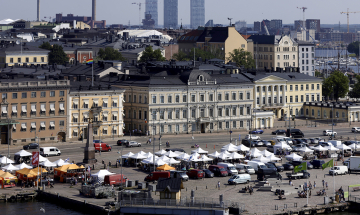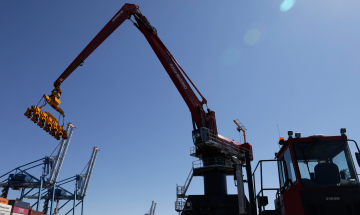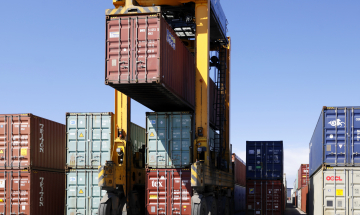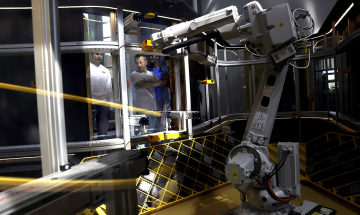Ship orders boost technology industry order books; Finland needs more significant investments
The information is based on the Federation of Finnish Technology Industries’ survey of new orders, order books and personnel development between October and December.
The economy is moving to the right direction. The turnover of technology industry companies in Finland grew by 10 per cent in 2017, amounting to EUR 74.1 billion. Half of the increase was attributable to increased production volumes and half to increased prices of raw materials and components.
The technology industry companies that took part in the Federation of Finnish Technology Industries’ survey of order books reported that the monetary value of new orders between October and December was as much as 54 per cent higher than in the preceding quarter and 40 per cent higher than in the corresponding period in 2016. At the end of December, the value of order books was 11 per cent higher than at the end of September and 25 per cent higher than in December 2016.
The jump is due to two large ship orders in particular, and also a drop during the preceding quarter. The level of orders rose to a higher level a year ago, but remained stagnant since then until the upswing brought on by the ship orders. Situations continue to vary considerably between individual companies.
The number of personnel in technology industry grew by slightly more than two per cent in 2017. On average, the industry employed 297,000 people.
Catching up requires significant changes
Despite the robust growth of the Finnish economy in 2017, it still lags behind its main competitors. In comparison to the levels reported in 2008, the gap between the GDP in Finland and the rest of the euro area is eight per cent. In exports, Finland lags behind by as much as 40 per cent.
According to calculations commissioned from Statistics Finland and Finnish customs, total manufacturing turnover in Finland in 2017 remained EUR 24 billion and goods exports EUR seven billion below the levels reported in 2008. Personnel numbers dropped by 93,000 in total.
This is mainly explained by the contraction of turnover and production of large manufacturing enterprises in Finland, which also has an effect on their subcontractors. This development is not due to creative destruction, because the large manufacturing enterprises have grown, but the growth has taken place outside Finland.
“This is due to the operating environment of companies – of all sizes – and the ability of Finland to attract business. There is no magic pill. Instead, a wide range of steps is required, as well as vast amounts of new investment. This enables Finland to finance the welfare state,” says Jorma Turunen, CEO of Technology Industries of Finland.
“Decision-makers should stay focused and not wait until the next government term.
Public RDI support should be restored to the same level as in the competitor countries, and a tax roadmap should be introduced to create competitive advantage. It is also important to use all means necessary to secure the availability of skilled labour. This includes promoting labour immigration,” Turunen says.
Industrial peace and responsible wage settlements
Eeva-Liisa Inkeroinen, Executive Vice President at the Federation of Finnish Technology Industries, emphasises the importance of industrial peace and responsible labour market negotiations. For achieving competitiveness and growth, it is vital that all sectors keep to the agreed cost level.
“The Bank of Finland and the Ministry of Finance have based their growth forecasts on responsible wage behaviour and continued improvement of Finland’s competitiveness. Losing momentum would be a costly mistake in terms of employment.”
“I find the thought of disruptions of industrial peace extremely unpleasant. Hopefully shipments of exports, important as they are, keep running smoothly and production will not be interrupted by political demonstrations. Disruptions would be a blow to the cooperation between social partners and trust in the labour markets, even if there is no infringement of Finnish law,” Inkeroinen says.
Further information
Jukka Palokangas, Chief Economist, phone +358 40 750 5469



